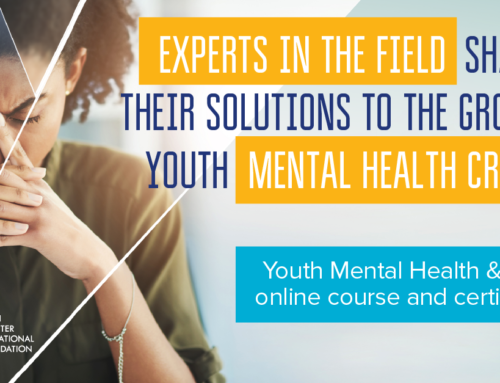
In an article published several years ago, one mom observed, “Most homeschoolers love to read — I mean, really love to read.” Kerry MacDonald should know; she homeschools her children, and her daughter, she reports, “read more books in the past six months than I read in my entire K-12 public schooling stint.”
Why this incredible love of books? She says it’s because “they have the time, space, and freedom to read when they want, what they want, how they want.” And, besides, “with homeschooling, reading is not a separate subject to be covered at certain times in certain ways; rather it is an integral and seamless part of overall learning.”
Whether you’re new to homeschooling, thinking about diving in, or consider yourself a seasoned pro, the powerful fruits of reading are sometimes hard to see.
Especially if you have a child who definitely doesn’t show signs of falling in love with reading. Maybe quite the opposite.
What’s the secret veteran homeschool moms know? That a child’s love of reading starts with parental initiative. That’s right! If you’re going unleash the power of reading in your homeschool, you’re going to have to do a lot of it, especially in the years when your children are young.
And here’s the best part: if reading is a big part of your homeschool lifestyle, your job will ultimately be much, much easier. Let’s dig into that a bit more, shall we?
The Endless Benefits of Reading
You’re a homeschool parent, but you’re wondering if you can possibly handle teaching all the subjects that your child needs to round out his education. Thankfully, you know there are shortcuts. Online classes can supplement the advanced subjects you don’t feel qualified to teach. Homeschool co-ops are a popular way to provide your students with a change of pace and a chance to learn things you might not get to at home.
But the best kept secret of homeschooling? You guessed it: reading.
The better your child can read, the easier your job will be. You can sit her down with her homeschool history course and know that she can read it, comprehend it, and answer study questions on her own. Sometimes you may only need to check her work at the end of the week. This hands-off approach can free up your schedule to teach the things that you want to teach, or give the freedom to have one-on-one time with another child who struggles to focus on a particular subject and needs you there to keep him on track.
Then, of course, there’s the option to combine the two. You might have two children who are close in age and find that you can combine their history by teaching them from the same book. In this case, you might opt to read the lesson aloud to them every day, then discuss the study questions together. This way, you’re teaching them, but drawing on the author’s extensive knowledge of the subject—which makes your job ten times easier!
The Superpower That You Didn’t Know You Had
Speaking of reading aloud, don’t limit this to just reading through textbooks or courses with your children. Read other things. Fiction. Non-fiction. Poetry.
See, when a child hears a book being read aloud, he’s expanding his vocabulary (learning new words and how to pronounce them) and his attention span. These skills come in very handy when you sit him down to read to himself. He already has a rich, expansive knowledge of language.
So, reading aloud is almost like a grammar/English course all on its own. And there’s a huge connection, says The New York Times, between reading aloud through elementary school and the chances of developing a life-long love of reading. So don’t stop reading books aloud after your child learns to read on his own.
“When we read to a child, we’re sending a pleasure message to the child’s brain.” Jim Trelease in The Read-Aloud Handbook.
Homeschooled children don’t often come away with a negative view of reading, as many public school kids do, Trelease points out. As a homeschool parent with an eye to individualizing each child’s curriculum, you can curate your child’s reading to his taste and pace.
Plus, reading aloud is a profound bonding experience for both parent and child. You have a chance to read to your child about great heroes of history, heroes of fiction, or even the phenomena of nature, which can awaken a child’s curiosity and open the door to conversation.
Reading aloud is the super-secret, homeschool parent, superpower you didn’t know you had!
How to Unlock the Power of Reading
Now that we’ve glimpsed the awesome benefits of reading, let’s talk about some ways you can unlock this power and integrate reading into your homeschool day.
- Of course you can use textbooks in homeschool, and that’s awesome! Textbooks have their place, and can get kids to consume large amounts of material like nothing else can. Recently, there has been a shift away from the strict textbook format (Abeka, anyone?) to more relaxed, creative homeschool courses. Now you can learn math while reading about the adventures of two siblings, create your own book about what you’re learning, and study the science of nature while actually getting outdoors.
- Take it a step further, and you can get into what some homeschool moms call “living” books. “Living books” is a Charlotte Mason term which means a book that has good morals, inspires, and teaches using a beautifully-written fictional narrative. You probably read some in school yourself; most historical fiction books are dubbed “living”, but there are less obvious examples, such as story books that teach math principles or weather or even etiquette. These are valuable books to add to any homeschool curriculum. The best part is, these kinds of books can be read aloud, but are so disguised as fun adventures that your kids may start picking them up themselves!
- Assigned reading is a traditional way of getting literature and informational books into a child’s diet. You’re more than free to assign reading in your homeschool, with the added bonus of curating each child’s book list to their taste—and your own! (No danger of an inappropriate book sneaking into that stack of assigned reading when you homeschool.)
- Homeschool families have the freedom to do a whole lot of reading throughout the day. If your kids beg to pick their own books, you might consider blocking out time in the day for quiet time where everyone chooses their own books, heads to their bedroom or out to the backyard for an hour (or maybe just half an hour!). Don’t worry if your kids always seem to pick up things like The Hardy Boys or a graphic novel during quiet time. If you keep up the good work, their tastes will mature in time. Plus, a little literary candy never hurt anyone!
- Audiobooks are another sneaky shortcut to add to your homeschool reading strategy. Listening to an audiobook can be a family activity (maybe you listen to an audiobook during lunch) or something your child does on her own. Audiobooks also promote quiet activity, so give your child something to do with her hands while she listens to her favorite stories.
- Don’t forget to introduce your homeschool students to poetry too! Some families have what they call “poetry teatime” where they set the table, have a special snack (and tea, of course), and read poetry. But you may prefer to curl up on the couch in the evening, or read some poems on a nature walk.
Raise a Reader
If incorporating reading into your homeschool daunts you, start small. Read picture books. Break read-aloud time into bite-sized pieces. Fifteen minutes is better than nothing!
The best way to start is to become excited yourself. Research books — and not just “homeschool” books, search for story books too. Search out novels and picture books that align with your values and have the potential to become your child’s new favorite. Become a bookworm, and your children will follow your example.
Reading has tremendous power in every child’s life, but homeschool offers a unique chance for that power to be fully unleashed. Take advantage of it!





[…] reading aloud “educational and social” as it often inspires children to love books because they’ve been read stories in a meaningful context: in their living room, sitting in the lap of a trusted adult, or at night […]
[…] your town, your hiking trails, the library, watch education YouTube videos and documentaries. Read good books. Spend a few minutes everyday Googling a random question you discussed at lunch or researching […]
[…] reading aloud “educational and social” as it often inspires children to love books because they’ve been read stories in a meaningful context: in their living room, sitting in the lap of a trusted adult, or at night […]